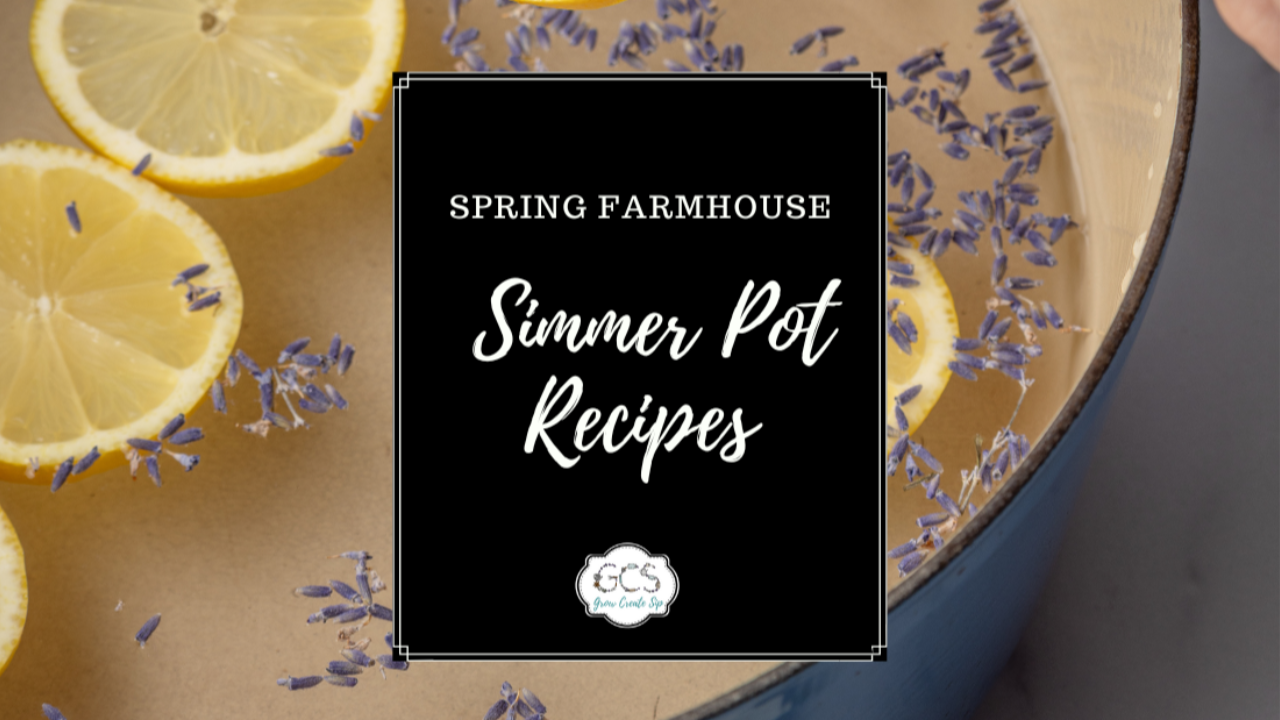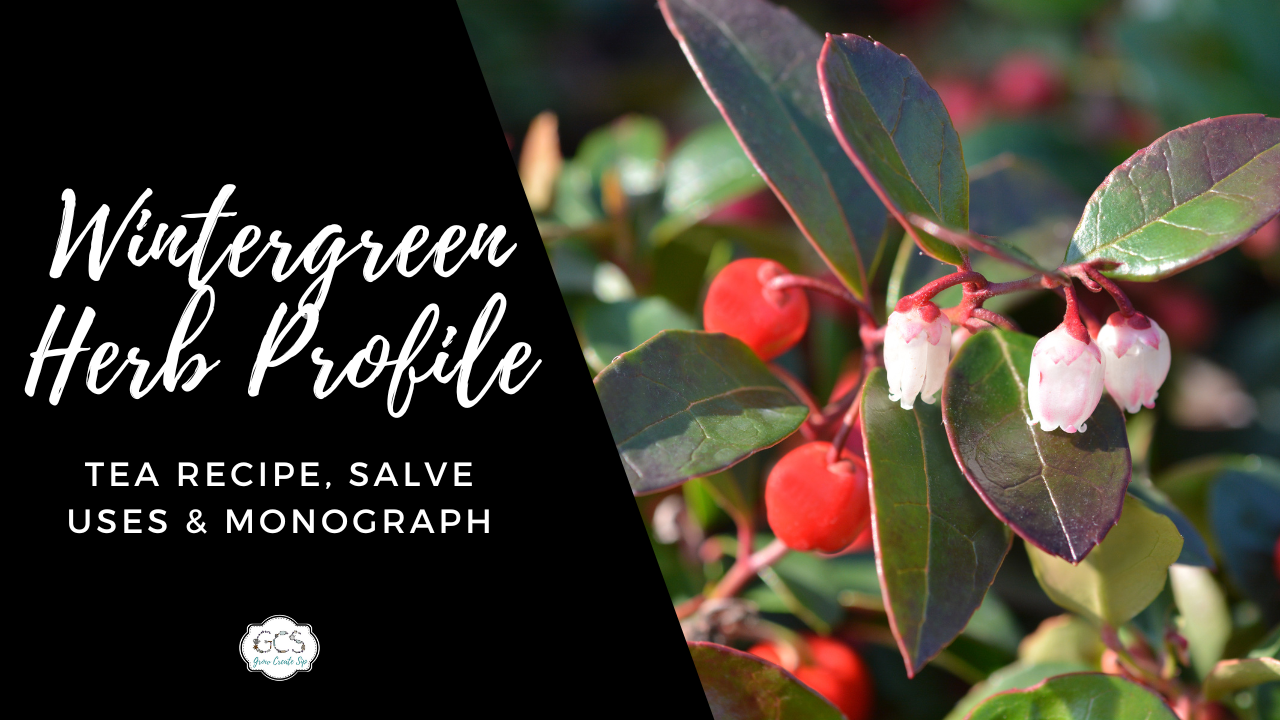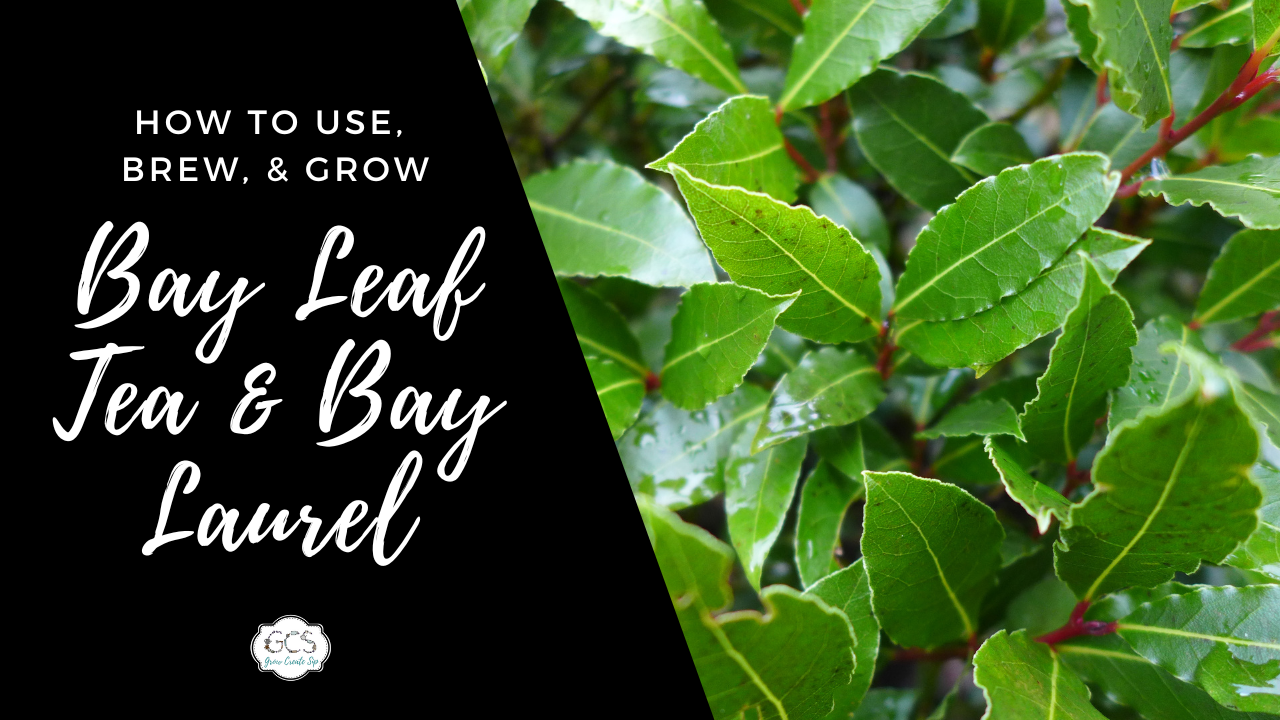Top 10 Healing Herbs for the Home Apothecary
Apr 15, 2024
Creating your own home apothecary is such a valuable tool for you and your family — especially with pharmaceutical shortages becoming more and more common. It's time to have a backup plan using the herbs that God made - some of them right in our own backyards!
Not only can an apothecary help you support your family’s health naturally, but it’s also a wonderful way to ease into the world of herbal medicine, just like how our grandparents (or great-grandparents!) used to do it before the first aid kit came out. Whether you want to ensure you have the medicine you need whenever you need it, or simply want to take control of your well-being, having a stash of medicinal herbs at home can be invaluable!
Our free guide to creating a home apothecary features our top 10 healing herbs to get you started. You’ll also learn how to build your herbal cupboard, select the best tools, and organize your remedies for improved health and wellness. From chamomile to turmeric, discover the medicinal properties of each herb. Manage your health naturally with our complete guide to home apothecaries and medicinal herbs!

The Legal Stuff
This blog is provided by St. Fiacre's Farm LLC for informational purposes only. It does not constitute medical advice, and you should always seek the advice of a qualified healthcare provider for any medical questions or concerns. Please note that we may earn a small commission on any purchases you make through our affiliate links, at no additional cost to you. Thank you for your support!
Why Build a Home Apothecary
A home apothecary offers invaluable support for natural health — and empowers you to do it without relying solely on modern medicine. Are there instances where medication and hospitals are necessary? Of course! But that doesn’t mean you can’t supplement your well-being with a bit of help from the hundreds (if not more) of medicinal herbs out there.
What’s more, when you embrace herbal remedies, you’ll get more autonomy over your health, which can also help you cut costs on health insurance and other medications. And… this is maybe our favorite part… it brings back traditional healing skills that have since been forgotten. Y’all know we love our traditional values around here! Herbalism is also more affordable than pharmaceuticals, and often times, you can grow them right in your own backyard or find them walking in a park! Affordable and convenient can't be beat!
When you have an apothecary, you’ll also be better prepared for emergencies, pharmaceutical shortages, and for those times when you aren’t able (or just plain old don’t want to) run out to the store.The better question should be, why not build a home apothecary?

Tools for Getting Started
Before we jump into the list of top 10 medicinal herbs, there are some specific tools you’ll need to start your herbal cupboard.
- Containers and jars: You’ll need some containers and jars for storing your herbs. Always opt for glass when you can, and ensure they’re kept in a cool, dark place. They need to be somewhere away from light to preserve their potency.
- Mortar and pestle: For grinding herbs. There are tons out there — we’re partial to our light grey marble and dark grey marble options!
- Tea press: For brewing tea. This French press works for both tea and coffee.
- Unbleached tea bags: Look for fillable unbleached tea bags to help you create your custom tea blends.
- Tincture bottles and salve tins: For storing your handcrafted remedies. This tincture bottle has a dropper for ease of use, and these metal tins come in a pack of 10!
- Capsule machine and capsules: Also very convenient to have on hand for making your own herbal medicine. We swear by this capsule machine and have both gelatin and vegetable capsules available.
This is just a jumping-off point! You should also invest in some herb scissors, a flower press, and a set of funnels, to name a few. Be sure to see our shop for additional tool ideas.

Top 10 Medicinal Herbs to Start With
As you learn more about herbal medicine, you’ll want to add a bunch more herbs to your cupboard. But, this list of 10 is a great place to start!
1. Chamomile
Calming and relaxing, chamomile is great for soothing stress and helping you wind down after a hectic day. Brew a pot before bedtime and you’ll be almost guaranteed to get a good night's sleep.
2. Peppermint
Peppermint is certainly a versatile healing herb! Use it to aid digestion, soothe headaches, and boost energy. A cup (or a few) of peppermint tea after meals may help you digest more easily. Or, a good wiff of peppermint oil for a quick afternoon pick-me-up!
3. Lemon Balm
Though it might sound like a salve — and you can certainly use it to make one! — lemon balm is actually an herb. It can be helpful for reducing anxiety and improving mood, so consider brewing a pot when you’re stressed. Or, on a gloomy day! Lemon balm brings calm!
4. Lavender
This may be one of the most well-known herbs on our list. Lavender has long been used for its calming effects… perfect for those with sleep issues or if you’re feeling tense. Add a few drops of (homemade) lavender oil to your bath or pillow before you settle down for bed.
5. Coneflower
Also called echinacea, coneflower supports immune system health. In other words, if you want to support a cold or flu, you should definitely add this herb to your home apothecary! Create your own coneflower supplements so you have them on hand at the first sign of the sniffles.
6. Ginger
Ginger is known as a pretty potent anti-inflammatory and can be really helpful for a variety of ailments. It can soothe nausea, indigestion, and even pain associated with that time of the month. You can use fresh ginger, or turn the root into some ginger tea!
7. Turmeric
The distant cousin of ginger, turmeric is a bright orange root with tons of anti-inflammatory and antioxidant properties. It can be helpful for arthritis and other joint issues and is generally good for overall well-being. Use it as a tea (like ginger) or grind it down to put into a capsule.
8. Nettle
A nutritive herb, nettle is quite literally packed with nutrients like vitamins and minerals. It supports your immune system and can even support allergies. Nettle tea is a popular way to consume it, or you could add cooked nettles to your favorite soups and stews.
9. Valerian
Used in teas and tinctures, valerian is renowned for its sedative properties. If you want deep, restful sleep without grogginess, consider trying this medicinal herb. Create your own tincture or supplement, or brew a pot of valerian tea before bedtime to help you relax and improve your sleep quality. As a note, don’t use it before operating a vehicle or heavy machinery.
10. Rosemary
You probably have this one tucked away in your spice cabinet already! Yes, rosemary tastes great, but it’s also rich in antioxidants and supports cognitive function and digestion. We most often enjoy it in rosemary tea, but you can also infuse it into a tincture or salve.

How to Organize Your Herbs
Now that you know which herbs to gather, let’s get organized! It can be helpful to come up with some sort of system — separate them alphabetically, by medicinal properties, or by common uses. Choose whatever way works best for you and your needs.
Label each container, jar, bottle, and tin clearly with the herb’s name and date of purchase to keep things fresh. Store your herbal monograph within easy reach as well to refer to as you create your teas, tinctures, and supplements. We have another whole blog post on organizing herbs and a video lesson in the Herbal Studio Library.
Not sure what an herbal monograph is? Learn more here and grab your free template!
Home Apothecary Frequently Asked Questions
How do I get started with herbs?
To get started with herbs, we always recommend you keep a personal material medical of different herbal monographs! Read lots of articles like this one, start reading about specific herbs’ uses and benefits (especially herbs that you may be growing and or already use), and talking with people you know who have an herb garden. Then, the fun part! Experiment with planting your own, then try different preparations like tea, tinctures, or herbal infusions. Start slowly and gradually expand your knowledge and herb collection as you become more comfortable with herbal medicine.
What is an herbal apothecary?
An herbal apothecary is a collection of herbs and herbal preparations used for medicinal purposes. It can be helpful to think of it like an at-home pharmacy where you can create your own natural remedies to support your health and overall well-being. It typically includes a variety of healing herbs, salves, tinctures, and oils.
What is the difference between an herbalist and an apothecary?
An herbalist specializes in the medicinal use of herbs for health and wellness. They have studied herbalism and often offer consultations or create custom remedies for clients. An apothecary is a place where herbs are stored and collected. So, an herbalist practices herbalism with the help of their own apothecary!

Create Your Apothecary Today
You officially have all of the information you need to start your very own apothecary! With this list of essential tools, the top 10 herbs to get you started, and tips on organizing your collection, you’re well on your way to having a well-stocked at-home pharmacy. From calendula to valerian, there are many good herbs here to help with many basic ailments. They may all be used in teas or tinctures and in a great many different combinations. If you would like to dive deeper into how to apply these herbs to preparations and more on what they are used for, along with an herbal monograph library of over 70 different plants, make sure to check out our Herbal Studio Membership Library.
As you get going, don’t forget to download our free herbal journal worksheets! It’s an easy way to keep track of all of the herbs you’re studying… and the template is pretty cute to boot! I'd love to know in the comments below what herbs do you currently use or which ones do you want to know more about.
Other Posts You May Enjoy
- Home Apothecary Herbal Labeling Tips + FREE Label Template
- Tincture Making and Crafting Your Own Tincture Recipes
- Most Affordable and Productive Medicinal Plants to Grow
- Dehydrating Flowers, Fruits & Botanicals (For DIY Herbal Tea)
- How to Make Herb-Infused Oils with Medicinal Herbs
- How to Make Your Own Tea Blends: The Pyramid Method















